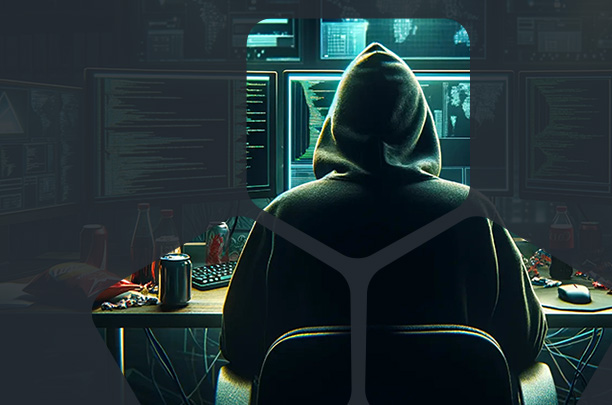As we wrap up Women’s History Month, I’ve been reflecting on my own journey and the powerful women who have shaped my career and life. From the lessons learned at an early age to the unexpected turns that brought me into the world of cybersecurity, I’ve come to realize how much the women around me—along with a bit of luck and a whole lot of flexibility—have played a role in my success. So, in honor of this month, I wanted to share a bit of my story, the lessons I’ve learned along the way, and what it means to take a path less planned but full of purpose.
For as long as I can remember, I’ve been an extreme planner. I’m the type of person who plans their spontaneity. My list-making even became the subject of most of my wedding night toasts (okay, maybe roasts). However, when I look at how I ended up running a global threat intelligence team, I must admit: I didn’t plan for this.
So, how did a kid from Alaska end up in this position? Somehow, I went from living below the U.S. federal poverty line, surrounded by crime and misfortune, to earning a PhD in mathematics and speaking at public forums on advanced cybercrime. Between those moments, I spent a full career at the National Security Agency (NSA). Without a doubt, luck played a huge role in my success. But there were other factors that helped me capitalize on luck as it came my way.
A big part of my journey can be credited to the many incredible women who served as role models in my life. These women did not just talk about overcoming obstacles—they showed me how it is done through their actions. My mother, an immigrant, faced the challenge of raising three determined children on her own. Despite this, she pushed through, earning her education and eventually finding stability as a teacher. Having grown up during World War II, she is not one for complaining, but her strength and perseverance have stuck with me.
Alongside her, I had great-aunts and Girl Scout leaders who loudly championed education, independence, and equality. From them, I learned lessons about leadership, service, and the importance of standing up for yourself and others. These lessons have been my guiding light at every decision point along the way.
However, I realize not everyone is fortunate enough to have role models like these, but we can all do two things: First, champion others by creating a supportive environment. At the NSA, I was fortunate to have people who saw potential in me that I hadn’t recognized. They weren’t formal mentors, but they took an interest in my growth, and I learned to embrace their guidance. Second, seek support. Life’s obstacles require a thoughtful approach to building a support network, and it’s crucial to find the right mentor to help you navigate the challenges you’re facing or the goals you want to achieve. By championing others and seeking help when needed, we create a network that turns individual journeys into shared paths of progress.
While I’ve always been a planner, I’ve also learned to remain flexible. I originally planned to be a lawyer (I do love a good argument) and later thought about becoming a professor (I talk a lot, so it seemed like a good fit). But life’s winds took me to the NSA, where I worked as a mathematician, technical director, and even spent time as a strategist working to combat terrorism. One of my champions once told me, “Someday, you’re going to be asked to be a manager. It might not be what you want to do, but it will be the right thing to do.” When that call came, I said yes. It was not what I planned, but it was the right decision.
Though I had planned for years to return to the Pacific Northwest—and in doing so, leave behind my 20-year career at the NSA—when the time finally came, I was terrified. Leaving a successful career is never easy, and the fear of the unknown can be overwhelming. Then, an opportunity at Infoblox surfaced, but the position was in-person. Thankfully, a mentor stepped in and said, “You’re the perfect fit for that job—just ask for 100% remote work.” A bit of luck, careful planning, and some flexibility made it all come together.
My work at Infoblox has allowed me to continue doing what I started at the NSA: protecting people from bad actors. But in the commercial world, our team’s efforts protect a much broader range of individuals from students in classrooms to mobile users on the go, and even global enterprises. The criminal tactics are different in the private sector, and it has been an endless learning curve. I’ve gained a new appreciation for the impact of crime outside of traditional national security threats.
To accomplish our goals, we have built a small but expert global team focused on DNS and understanding how threats manifest in that space. I like to say, “we do DNS all day, every day.” As we grow the team, we have prioritized hiring people who are quick learners and complement the group’s strengths. Success in this field requires diverse perspectives, and we are proud to have a healthy number of women on our team. That being said, the pipeline of talent from women and minorities remains smaller than it should be.
My team often finds that cybersecurity is viewed through the lens of the latest malware or headline-grabbing attacks, but the reality is that combating cybercrime is a long-term effort. To succeed, we need to grow interest and talent starting in elementary school. Ensuring opportunities for kids, especially women and minorities, to learn and build confidence in their skills is key to the future of both the tech industry and cybersecurity.
The last seven years at Infoblox have been a dream come true. I work with a team that supports each other, is passionate about what we do, and is truly making a difference in people’s lives. I’m exactly where I need to be. The camaraderie we have built reminds me of those early lessons from the women who shaped my thinking: that the strongest teams lift each other up, celebrate diverse perspectives, and face obstacles together.
As we reflect on what Women’s History Month truly stands for, I hope we can all take a moment to remember the power of supporting and championing each other, and how important it is to plan—but also stay flexible—on our journey. The greatest legacy we can create is not just in our own achievements, but in how we help others discover their potential and find their own unexpected paths to success.








